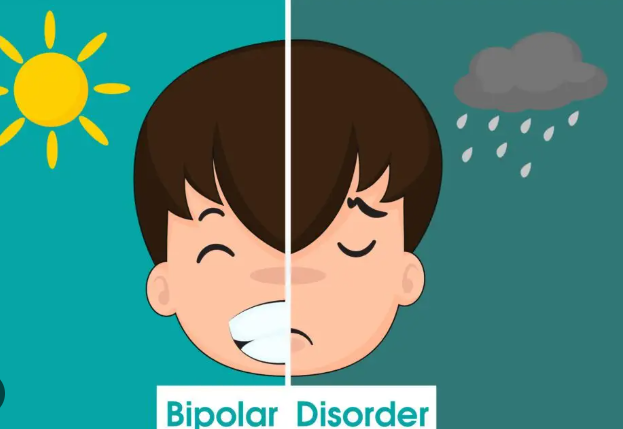
Bipolar disorder is a complex and chronic mental health condition that affects millions of individuals around the world. Its cyclical nature, characterized by mood swings from manic highs to depressive lows, poses significant challenges for those experiencing it and their loved ones. While bipolar disorder is currently without a cure, treatment options continue to evolve, offering hope and improved quality of life for many. This article delves into the various treatments available, from medications and therapy for bipolar disorder to lifestyle adjustments. Keep reading to explore the avenues that can lead to better management of bipolar symptoms and overall wellness.
Pharmaceutical Treatments for Bipolar Disorder: Pros and Cons
Medication is a cornerstone of treatment for bipolar disorder, with mood stabilizers being the most commonly prescribed class of drugs. Lithium has been used for decades to help control mania and prevent the recurrence of both manic and depressive episodes. However, despite its efficacy, lithium requires careful monitoring due to potential side effects like thyroid and kidney issues. Anticonvulsant medications, such as valproate and lamotrigine, are also used as mood stabilizers, with varying degrees of success.
Antipsychotic medications can be effective in managing manic episodes and sometimes work as mood stabilizers as well. Aripiprazole, olanzapine, and quetiapine are examples of antipsychotics that may be utilized in the treatment of bipolar disorder. While they can be potent in providing relief from manic symptoms, they too come with side effects, including weight gain, metabolic syndrome, and extrapyramidal symptoms, which can impact overall health and quality of life.
For the depressive phase of bipolar disorder, traditional antidepressants are used with caution. There is a risk that these medications can trigger manic episodes or rapid cycling between moods. Treating bipolar depression can be particularly challenging since antidepressants need to be combined with a mood stabilizer or antipsychotic to mitigate these risks.
Psychotherapy Approaches in Managing Bipolar Symptoms
Psychotherapy is another integral component of a comprehensive treatment strategy for bipolar disorder. Cognitive-behavioral therapy (CBT) can be particularly beneficial, helping individuals identify and alter negative thought patterns and behaviors associated with their mood swings. This form of therapy is often effective in decreasing the severity and frequency of episodes when combined with medication.
Another approach, interpersonal and social rhythm therapy (IPSRT), focuses on stabilizing daily rhythms such as sleeping, eating, and activity schedules. This is based on the recognition that disruptions in these daily patterns can trigger mood episodes. By establishing consistent routines, individuals can achieve a level of stability that helps mitigate the symptoms of bipolar disorder.
For many, family-focused therapy offers significant benefits, educating family members about the disorder and training them in better communication and problem-solving skills to support their loved one effectively. Involving family in treatment can be crucial, as it can lower levels of conflict and stress within the home, which are potential triggers for bipolar episodes.
Lifestyle Changes and Alternative Treatments for Bipolar Wellness
In acknowledging the importance of holistic health, lifestyle modifications can have a significant impact on the management of bipolar disorder. Regular exercise, adequate sleep, and a balanced diet can contribute to overall mood stability. Physical activity, in particular, has been shown to reduce depressive symptoms and improve cognitive function, making it a valuable addition to treatment plans.
Mindfulness practices, such as meditation and yoga, have also gained popularity as complementary treatments. These practices help individuals with bipolar disorder to stay present and calm, potentially reducing the impact of stressors that could provoke a mood episode. While not a substitute for medical treatment, integrating mindfulness into daily routines can enhance coping skills and emotional regulation.
Future Directions in Bipolar Disorder Treatment and Research
The landscape of bipolar disorder treatment is continuously evolving. Researchers are seeking a deeper understanding of the biological underpinnings of the disorder, which could lead to more targeted and effective treatments. Advances in genetics and neuroimaging hold promise for identifying biomarkers that may predict an individual's response to specific medications, enhancing personalized medicine approaches.

Another area of research is exploring the use of technology in treatment. Digital tools like mood-tracking apps and teletherapy platforms can support self-management and provide accessible care, particularly for individuals in remote or underserved areas. The integration of artificial intelligence to analyze patterns in mood and behavior might also play a role in future interventions.
Altogether, the treatment of bipolar disorder requires a multifaceted approach, combining medical interventions with psychological support and healthy lifestyle choices. Overall, staying informed about evolving therapies and engaging in open discussions with healthcare providers can help individuals navigate the challenges of bipolar disorder, leading to a more balanced and fulfilling life.



(0) comments
Welcome to the discussion.
Log In
Keep it Clean. Please avoid obscene, vulgar, lewd, racist or sexually-oriented language.
PLEASE TURN OFF YOUR CAPS LOCK.
Don't Threaten. Threats of harming another person will not be tolerated.
Be Truthful. Don't knowingly lie about anyone or anything.
Be Nice. No racism, sexism or any sort of -ism that is degrading to another person.
Be Proactive. Use the 'Report' link on each comment to let us know of abusive posts.
Share with Us. We'd love to hear eyewitness accounts, the history behind an article.